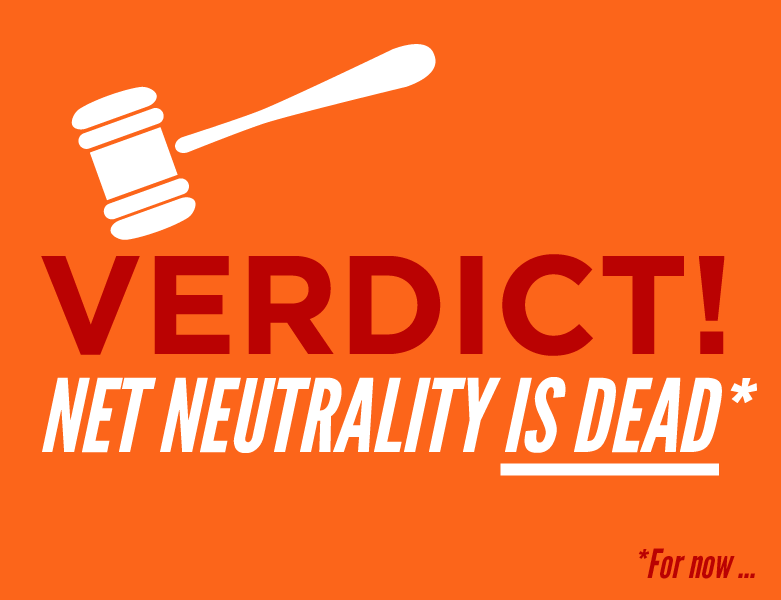On Tuesday, the US Court of Appeals for the District of Columbia Circuit struck down Net Neutrality rules set by the Federal Communications Commission in 2011. The 2-1 ruling maintained the FCC's right to regulate broadband access, but dictated that the FCC could not regulate how broadband providers manage traffic, in part because broadband and wireless service providers are categorized differently from telecommunication services.
Don't know what net neutrality is? The language can be complex, but essentially it ensures that broadband and wireless service providers preserve open access to the Internet. In general, they can't block lawful content and they can't discriminate against traffic on their networks. We hear a lot about the FCC imposing irritating regulations, but this is one instance where they were protecting the consumer from the possibility of being nickled and dimed.
The victors of the ruling, Verizon Communications, made a statement through Randal Milch, Verizon's executive vice president, who said that the company wishes to keep the internet open but that this decision will "allow more room for innovation":
One thing is for sure: today's decision will not change consumers' ability to access and use the Internet as they do now. The court's decision will allow more room for innovation, and consumers will have more choices to determine for themselves how they access and experience the Internet. Verizon has been and remains committed to the open Internet which provides consumers with competitive choices and unblocked access to lawful websites and content when, where, and how they want.
However, this means that can now charge consumers and other Internet companies like Amazon, Google, and Netflix additional fees for priority bandwidth usage. And why wouldn't they? A company like Comcast would have an interest in making its on-demand video service look more appealing by restricting the bandwidth to Netflix, Hulu Plus, and Amazon Prime or by charging their users an extra fee. Maybe that would improve speeds for those apps, but it's just as likely that they won't.
The same applies for online gaming, where internet providers could charge more for bandwidth on specific games you play. You may see your bill increase for playing Guild Wars 2, experience more lag on Xbox Live or PSN, or find yourself blocked out from specific sites. When net neutrality breaks, your wallet may too.
Luckily, the United States Supreme Court can overturn this decision and the FCC can file an appeal. Even the court in its decision was concerned that network operators could abuse their power without net neutrality rules in place.











